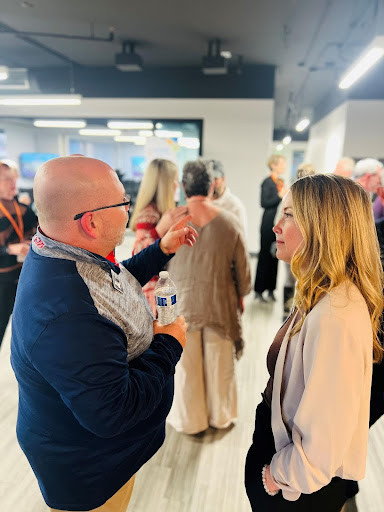
Philanthropy is too often reduced to a ledger line: a sum written, sent, and quietly filed away. The most durable change, however, comes when money is treated as one tool among many, coupled with time, expertise, and relationships. Social Venture Partners (SVP) operates from that conviction. It doesn't simply direct capital to worthy causes. SVP crafts systems where donors, nonprofits, and businesses learn from one another, share responsibility, and build capacity for long-term solutions.
SVP began as an experiment in reimagining generosity. It emerged from the dynamic spirit of Seattle's tech boom and the drive of philanthropists who craved more than passive giving. Inspired by principles of venture capital, such as rapid learning and accountable partnerships, the network designed an approach initially known as venture philanthropy, now evolved into a model of engaged philanthropy.
Central to this model are local affiliates where individuals come together to pool funds, contribute their skills, and actively participate in the growth of community organizations. Their collective efforts aim to strengthen nonprofit ecosystems and create lasting impact. To guide this growing movement, SVP International (SVPI) supports expansion, formalizes standard practices, and helps ensure that new chapters launch with the values and frameworks needed for long-term success.
Essentially, the organization's mission is to catalyze equitable, community-led change by bringing together committed partners who invest their money, time, and expertise in shared solutions. Its services span capacity-building grants, multi-year operational support, pro bono consulting, curated learning exchanges, and facilitation that helps cross-sector leaders coordinate strategy.
Rather than treating grants as one-off fixes, SVP affiliates prioritize unrestricted funding and long-term relationships that stabilize nonprofits and scale the strategies that tackle root causes. These challenges might stem from systemic barriers in education or entrenched economic inequities.

Affiliates convene local philanthropists, individuals, families, and businesses, and guide them through an immersive process of relationship-building and hands-on volunteering. The combination of capital and human resources is the distinctive proposition. "Donors aren't anonymous contributors but engaged partners who bring networks and skills to the table," Ciara Garcia, SVPI's CEO, states.
Today, the SVP network is broad and diverse. It has affiliates and partners active across multiple countries and regions, working alongside a wide range of nonprofit organizations. Its portfolio emphasizes education, pathways to economic mobility, and social justice initiatives.
SVP intentionally elevates the voices and influence of those impacted by policy and funding decisions. "That means inviting community voices into grantmaking tables, prioritizing unrestricted operating support, and insisting that volunteers and funders listenbefore they prescribe solutions," says Garcia.
The organization's latest State of the Network Report shows that intentional alignment and meaningful partnerships produce outsized results. A recent survey of affiliates showed that the network's renewed clarity of values and shared operating principles have translated into greater coherence across regions, a sharper focus on long-term systems change, and a noticeable rise in the diversity and depth of resources mobilized for communities.
Garcia frames SVP's work as a practice of trust. "Our role isn't to parachute solutions into communities," she says. "It's to build structures where communities lead and donors learn. Together, we create opportunities for people to thrive."

Garcia shares the next phase for SVP. A strategic plan will refine the model based on years of evidence about what works. Meanwhile, new affiliates, including a planned launch in New York in the fourth quarter of 2025, will test the model in fresh contexts.
Ultimately, the ambition isn't growth for growth's sake, but to seed networks where local expertise and pooled resources can respond to urgent, complex problems. "Philanthropy works when it embraces partnership," Garcia remarks. "Centering those affected is both the method and the reward."







